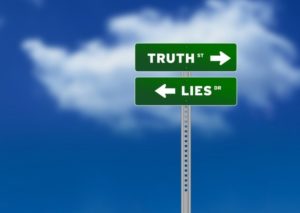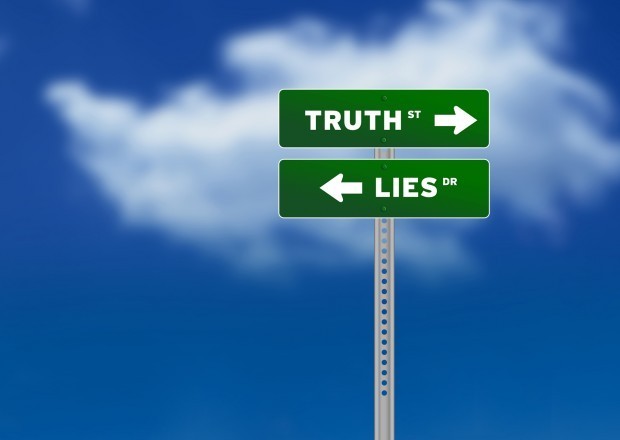The Ninth Commandment – Thou Shalt Not Bear False Witness
Podcast: Play in new window | Download
Subscribe: RSS
 Date written: 10 September 2015
Date written: 10 September 2015
SUBJECT: Ten Commandments
TITLE: The Ninth Commandment – Thou Shalt Not Bear False Witness
PROPOSITION: In this lesson we will study the ninth commandment not to bear false witness. We will define the commandment, study what the Old Testament said about this, and then study what the New Testament says about it.
OBJECTIVE: For each to understand the ninth commandment and why it is important today.
INTRODUCTION:
1. Read: Exodus 20:1-17
2. About the Text:
1) The background of this text is the exodus of the children of Israel out of Egypt.
2) They were camped at the base of Mount Sinai.
3) And God speaks directly to them from heaven these “Ten Commandments.”
4) They are referred to as such in Exodus 34:28, Deuteronomy 4:3 and 10:4.
5) These commandments were the basis for the rest of the Mosaic Law.
6) They form the nucleus of God’s desires for men to live a moral and godly life.
7) God wanted to impress upon Israel the seriousness of these words.
8) And he did so; the children of Israel asked Moses to intercede for them upon hearing God’s words.
9) The commandments are introduced with a statement of identification by God.
10) Exodus 20:1-2.
11) The two verses emphasize to us the identity of the one giving the commandments.
12) They are not to be taken lightly.
13) The commands are also in two parts.
a. Love for God
b. Love for man.
3. The commandments today.
1) Today, we see the Ten Commandments politicized.
2) They are a symbol to many for morality and righteousness.
3) But do we know what they are and what they mean?
4) Let’s take a look at the Ten Commandments in an effort to understand them and how they apply today.
4. The Ninth Commandment – Thou Shalt not Bear False Witness
1) In a study of 121 college students ask to engage in a conversation with someone they had just met, students averaged three lies in ten minutes.
2) Their excuse when confronted about it was, “Everybody does it.”
3) Another study said people lie in 2/3rds of all their conversations.
4) British Psychologist Philip Hodson said, “It’s now as acceptable to lie as it is to exceed the speed limit when driving. Nobody thinks twice about it.” (The Post-Truth Era by Ralph Keyes, 5-6).
5. Ref. to S, T, P, O, and A.
DISCUSSION:
I. What is bearing false witness?
1. The wording of the commandment.
1) Most translations say simply, “You shall not bear false witness against your neighbor.”
2) The Hebrew wording is a little different: “You will not make against your neighbor a witness of a falsehood.”
3) The commandment in Deuteronomy 5:20 uses a different word on the end: “You will not make against your neighbor a witness of a vanity.”
4) The second commandment would include deceptions as well as out and out falsehoods.
2. Is this just talking about legal lying, or what we call perjury?
1) In the Keil and Delitzsch commentaries, they write: “From this it is evident, that not only is lying prohibited, but false and unfounded evidence in general; and not only evidence before a judge, but false evidence of every kind, by which (according to the context) the life, married relation, or property of a neighbour might be endangered.”
2) Deuteronomy 23:1 says, “You shall not circulate a false report. Do not put your hand with the wicked to be an unrighteous witness.”
3. This prohibition included saying anything against one’s neighbor that was false or deception.
4. It wasn’t just referring to “legal lying,” or perjury.
II. What does the Old Testament say about Lying?
1. Both lying and deceiving.
1) Leviticus 19:11 – “You shall not steal, nor deal falsely, nor lie to one another.”
2) Psalm 101:11 – “He who works deceit shall not dwell within my house; He who tells lies shall not continue in my presence.”
2. Slander
1) Leviticus 19:16 – “You shall not go about as a talebearer among your people; nor shall you take a stand against the life of your neighbor: I am the Lord.”
2) Psalm 101:5 – “Whoever secretly slanders his neighbor, Him I will destroy; The one who has a haughty look and a proud heart, Him I will not endure.”
3. Listen to Jeremiah description of those in his day – Jeremiah 9:3-6.
4. Penalty for perjury – Deuteronomy 19:16-19 – Read.
III. What does the New Testament say about Lying?
1. Jesus –
1) Matthew 15:19 “For out of the heart proceed evil thoughts, murders, adulteries, fornications, thefts, false witness, blasphemies.”
2) Jesus was the victim of those who bore false witness: “For many bore false witness against Him, but their testimonies did not agree” (Mark 14:56).
2. Ananias and Sapphira – Acts 5.
3. Paul –
1) Ephesians 4:25 – “Therefore, putting away lying, ‘Let each one of you speak truth with his neighbor,’ for we are members of one another.”
2) Colossians 3:9-10 “Do not lie to one another, since you have put off the old man with his deeds, and have put on the new man who is renewed in knowledge according to the image of Him who created him.”
4. Liars among those who experience the second death – “But the cowardly, unbelieving, abominable, murderers, sexually immoral, sorcerers, idolaters, and all liars shall have their part in the lake which burns with fire and brimstone, which is the second death” (Revelation 21:8).
CONCLUSION:
1. We have looked at . . .
1) What the commandment means.
2) What the Old Testament said.
3) What the New Testament says.
2. Read Psalm 15.
3. Invitation

